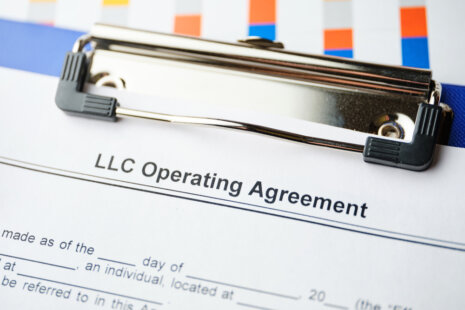The maximum tax write-off for an LLC (Limited Liability Company) depends on several factors, including the type of expenses incurred, the business’s income, and applicable tax laws.
Here are some key considerations regarding tax write-offs for LLCs…
- Business Expenses – LLCs can typically deduct ordinary and necessary business expenses from their taxable income. These expenses may include rent, utilities, office supplies, salaries, wages, advertising, travel, insurance, professional fees, and other costs directly related to operating the business.
- Start-up and Organizational Costs – LLCs may be able to deduct certain start-up and organizational costs incurred before the business begins operating. The IRS allows LLCs to deduct up to $5,000 in start-up costs and up to $5,000 in organizational costs in the first year of business. Any excess costs can be amortized (deducted) over a period of 180 months (15 years).
- Section 179 Deduction – The Section 179 deduction allows LLCs to deduct the full cost of certain qualifying business assets, such as equipment, furniture, vehicles, and machinery, in the year they are placed in service, rather than depreciating them over time. For tax year 2023, the maximum Section 179 deduction is $1,080,000.
- Bonus Depreciation – In addition to the Section 179 deduction, LLCs may be eligible for bonus depreciation, which allows them to deduct a percentage of the cost of qualifying property in the first year it is placed in service. For tax year 2023, bonus depreciation is set at 100%.
- Healthcare Costs – LLCs that provide healthcare benefits to employees, including owners, may be able to deduct the costs of providing health insurance, as well as contributions to health savings accounts (HSAs) or health reimbursement arrangements (HRAs).
- Retirement Contributions – LLCs can deduct contributions made to retirement plans on behalf of employees, including owners. Contributions to SEP IRAs, SIMPLE IRAs, 401(k) plans, and other qualified retirement plans may be deductible, subject to certain limitations and requirements.
It’s essential for LLCs to keep detailed records of their income, expenses, deductions, and tax-related transactions throughout the year and to consult with a tax professional or accountant to ensure compliance with tax laws and maximize tax-saving opportunities. The maximum tax write-off for an LLC will vary based on the specific circumstances of the business and the deductions available under the tax code.




